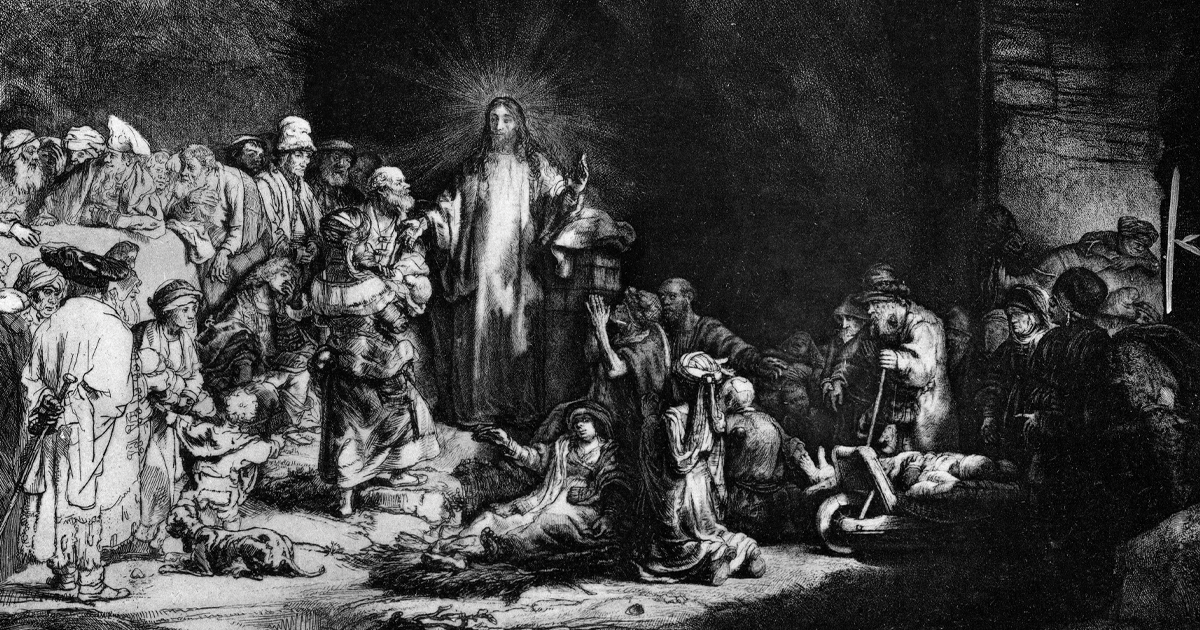Resurrection Our Great Task
"With utter impartiality He could judge righteously. Only so He could draw all men and women to Him and save them. And only so can His disciples to whom He has committed that great work."
The glory of God is seen in the face of Jesus Christ, and the knowledge of that glory alone can enlighten the world, dispelling its darkness, conquering its slavish fears, destroying its subtle sins and giant evils, and turning it once more into the Eden that was lost through disobedience.
This is our great task—so to live and love and labor as to unveil the face of Jesus Christ, and to let the world see the glory of God—the glory of His sacrificial love, atoning blood, sympathy, care, mercy, justice and truth. And this we can only do as we keep ourselves disentangled from the world, as was our Master.
No one ever mingled with sinners more freely than did Jesus, and yet we read that He was “holy, blameless, pure, set apart from sinners” (Heb. 7:26 NIV). He was in the world, but not of it. He was brother to everyone, but He “didn’t trust them, because He knew all about people. No one needed to tell Him about human nature, for He knew what was in each person’s heart” (John 2:24–25). He mingled and ate and walked and talked with them—not declining their invitation but accepting their hospitality—yet kept Himself separate from them and so drew them after Him and upward with Him. He walked with them and yet went before them. He came down to them and yet was above them. He loved them, yearned over them, and longed for their friendship and fellowship, and yet He would not compromise with them.
The Pharisees and rulers were frankly perplexed and puzzled by Him, because He seemed to be unconscious of—or to ignore—all the generally accepted moral and social distinctions and moved freely among all classes of the people regardless of their reputed character. If a Pharisee invited Him to dinner, He went to dinner with a Pharisee. If a tax collector gave Him an invitation, He accepted the invitation of the tax collector. If a fallen woman washed His feet with her tears and wiped them with the flowing tresses of her hair, He did not rebuke her or shrink from her touch, but gently defended her from her critics and declared her sins forgiven.
Jesus commended the Samaritan whom the Jews despised. He heeded the cry and healed the daughter of the Syrophoenician woman who was only a Gentile dog in the eyes of His countrymen. He was a brother to all. He was the universal friend “without partiality, and without hypocrisy” (James 3:17 KJV). And He maintained this all—embracing wideness of sympathy and this freedom of action by His detachments. He belonged to no party. He committed Himself to no one. Since He belonged to no restricted, oath—bound brotherhood—He could be everybody’s brother. Since He belonged to no party, He looked upon all parties without prejudice, and with utter impartiality He could judge righteously. Only so He could draw all men and women to Him and save them. And only so can His disciples to whom He has committed that great and unfinished work can save them also.
The Devil, by subtle appeal, sought to entangle Jesus, but the Master chose the hard and slow but sure way of the cross and returned from the wilderness temptations “in the power of the Spirit” (Luke 4:14 KJV). And always the Spirit accompanies with power those—and only those—who, keeping themselves disentangled, follow Him wholly.
In Christ Jesus, Paul wrote, “there is not Greek and Jew, circumcised and uncircumcised, barbarian, Scythian, slave, free; but Christ is all, and in all” (Col. 3:11 ESV). If he were writing today, I think he would say, “There is neither English nor Irish, German nor French, American nor Japanese, African nor Asian, Catholic nor Protestant, Muslim nor Jew, but Christ is all and all.” Jesus tasted death for everyone. “The arms of love that compass me would all the world embrace.” If we would walk in our Savior’s footsteps, we must enter into no association and allow ourselves to become possessed of no party spirit that would cloud our judgment of any group and narrow the breadth of our sympathy or chill the ardor of our love for all humanity.
Samuel Logan Brengle (1860-1936) was an influential author, teacher, preacher and proponent of holiness. This article is excerpted from his book “Resurrection Life and Power.” His nine published books, updated for today’s reader, are available individually or in the six–volume Holy Life Series boxed set at crestbooks.com.







